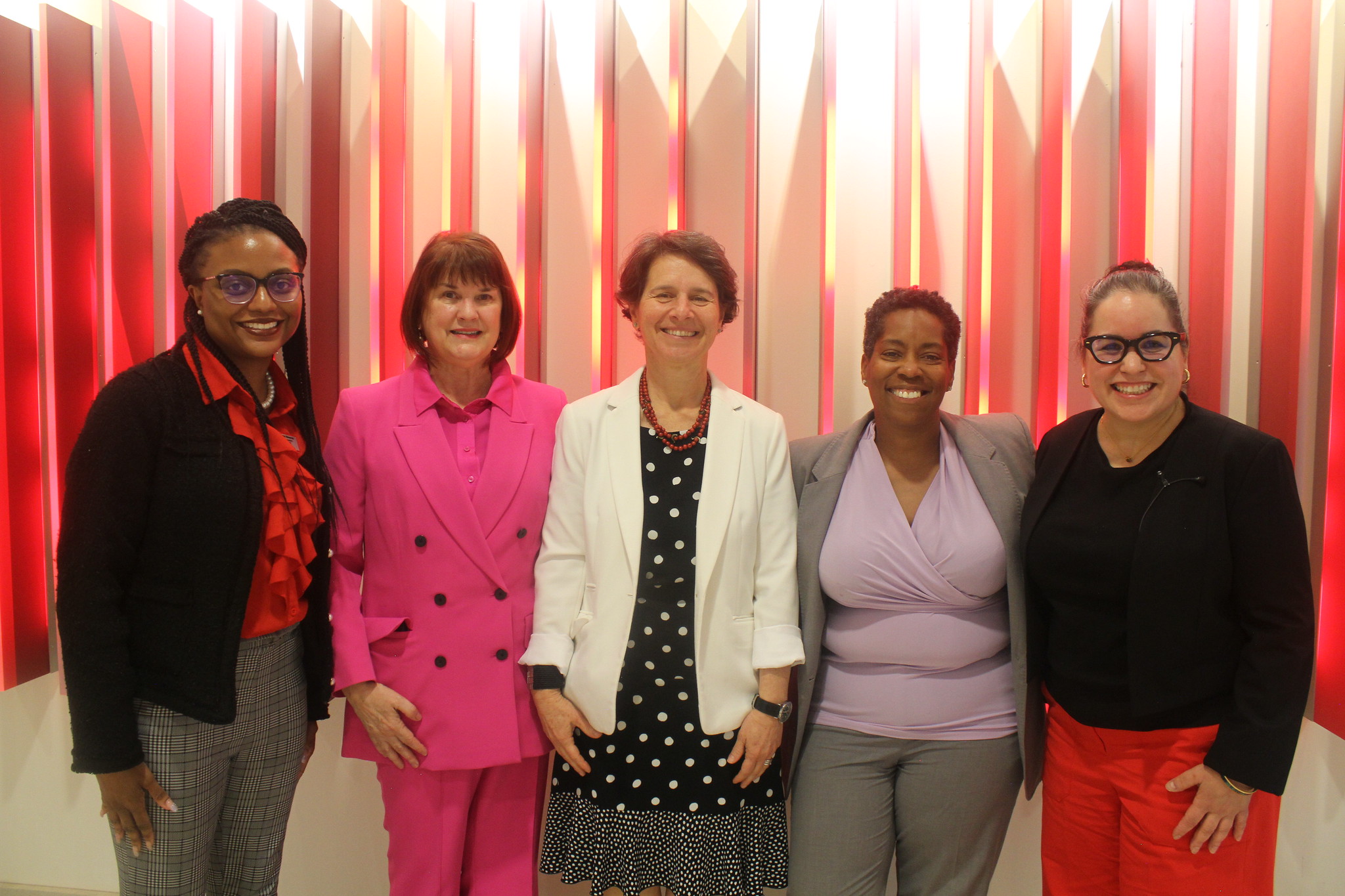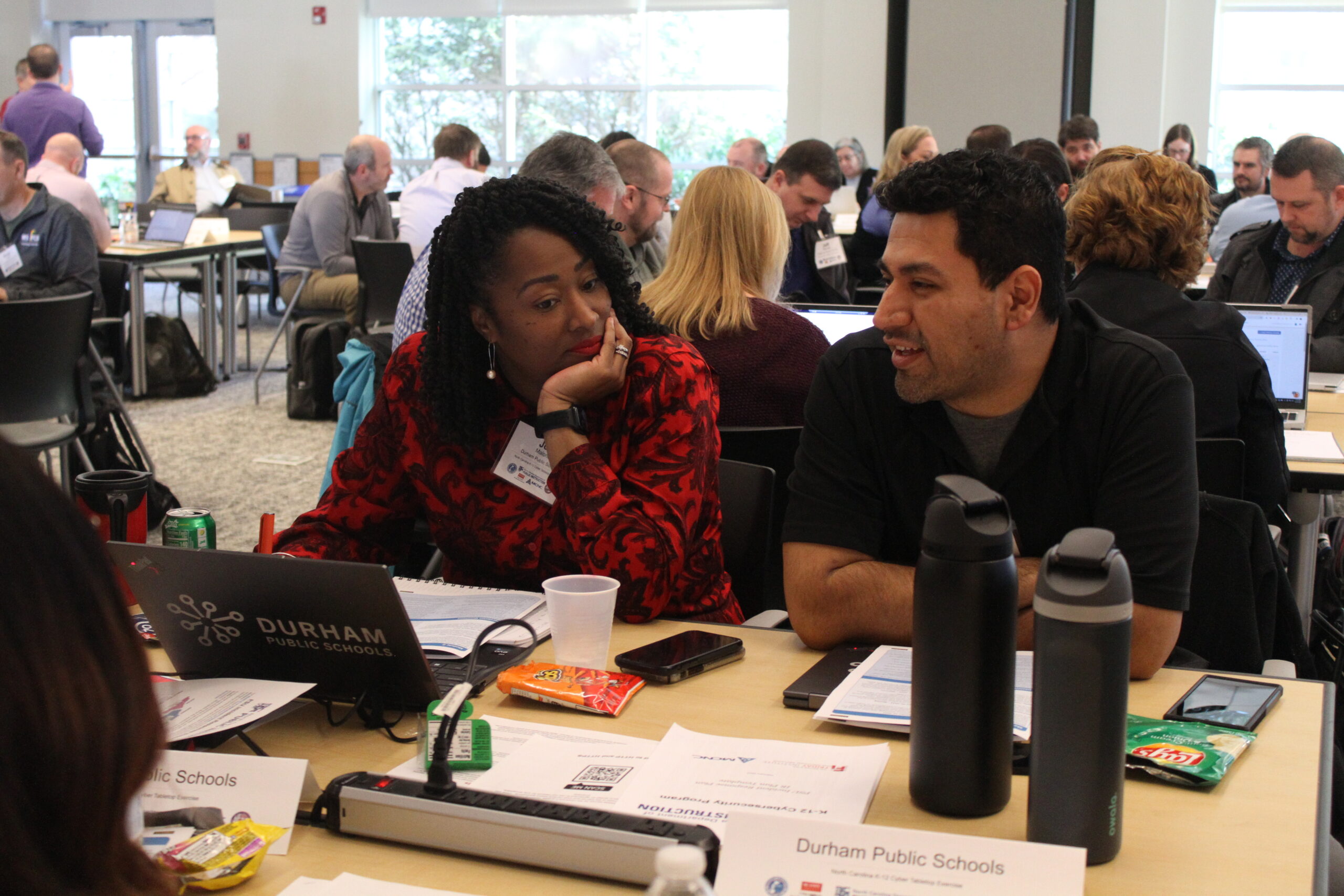Friday Institute Team to Increase Access to Computing Education for North Carolina’s Elementary Students with Department of Education Grant
A new one-year, $349,286 grant from the U.S. Department of Education will allow a team at the Friday Institute for Educational Innovation to create and develop a sustainable community of elementary teachers to support ongoing integration of computer science (CS) concepts into core content areas. By implementing a scalable professional development (PD) program and co-creating locally relevant curricular materials with teachers, the team aims to increase access to computing education in elementary schools, ensuring that every student in North Carolina has the opportunity to experience CS regardless of historical stereotypes and institutional barriers.
“I started my career as an elementary school teacher so this grant is close to my heart,” said Melissa Rasberry, director of the Professional Learning and Leading Collaborative at the Friday Institute and principal investigator (PI) on the project. “It is critically important that we help students learn, beginning at an early age, how to think computationally and understand computer science concepts, which are so ingrained into our everyday lives. We can help elementary students prepare today for the professions of tomorrow that don’t even exist yet.”
In addition to Rasberry’s leadership on the project, entitled “Making Computer Science (CS) STICK: Systemic Change for Teachers,” Rebekah Davis, a research associate at the Friday Institute, will be the research lead. Sheenal Young, program manager for computer science initiatives at the Friday Institute, and Amy Walter, a research scholar at the Friday Institute, are staff on the project.
In partnership with the Wake County Public School System (WCPSS), the team will target up to 60 elementary teachers from the district to recruit, train and provide support for the program. This cohort of lead teachers will then serve as informal coaches with their colleagues in their respective schools, expanding the impact of their work.
“Coding is a universal language, so we are excited that the Friday Institute is able to connect WCPSS K-5 magnet teachers with the opportunity to actively engage students in this language,” said Joshua Hunter, senior administrator of magnet curriculum outreach and support for WCPSS.
The Friday Institute team will leverage their expertise in CS content, curriculum and professional learning to address implementation barriers that prevent integration of CS in elementary classrooms in ways that are accessible and effective for both teachers and students.
Currently, most elementary teachers have little training or experience with CS. When they do receive PD, systemic barriers prevent effective classroom implementation. Cultural barriers include students having preconceived beliefs in who can participate in CS. Underrepresentation of students from historically marginalized populations, including females and students of color from non-Asian backgrounds, contribute to common societal stereotypes about who should prepare for careers in these fields. Institutional barriers include high priority given to the tested curriculum in reading and math, pressure to use specific curriculum resources and lack of administrator support for CS integration. Although North Carolina has adopted CS standards, curricular materials lag behind, particularly in financially stressed schools. CS activities and lessons developed and provided by others often do not have great value or interest for teachers without customization and individualization.
The “Making Computer Science STICK” program will feature three distinct phases of work. During the first phase in fall 2022, teachers will receive pedagogical and content-specific instruction based on the nationally recognized Code.org Computer Science Fundamentals curriculum. When they return to their classrooms, they will have time to embed what they’ve learned into their lessons, receiving support through a virtual community of practice throughout the year and developing best practices and cross-curricular activities that meet standards from core content areas –ELA, math and science – and CS standards. In the second phase, teachers will reconvene for a multiday institute to learn how to develop new curricular resources seamlessly into existing elementary curricula. Finally, in the third phase, the cohort of teachers will take ownership of scaling CS integration and share their newly created resources with other educators, serving as informal coaches with their colleagues in their respective schools to assist colleagues in embracing CS instruction.
The team plans to share their data and results after their work is complete in a case study, reflecting on the successes and challenges of the yearlong project. Their ultimate goal is to create a model for computing education that the North Carolina Department of Public Instruction (NCDPI) can bring to scale for elementary classrooms across the state.
- Categories:

